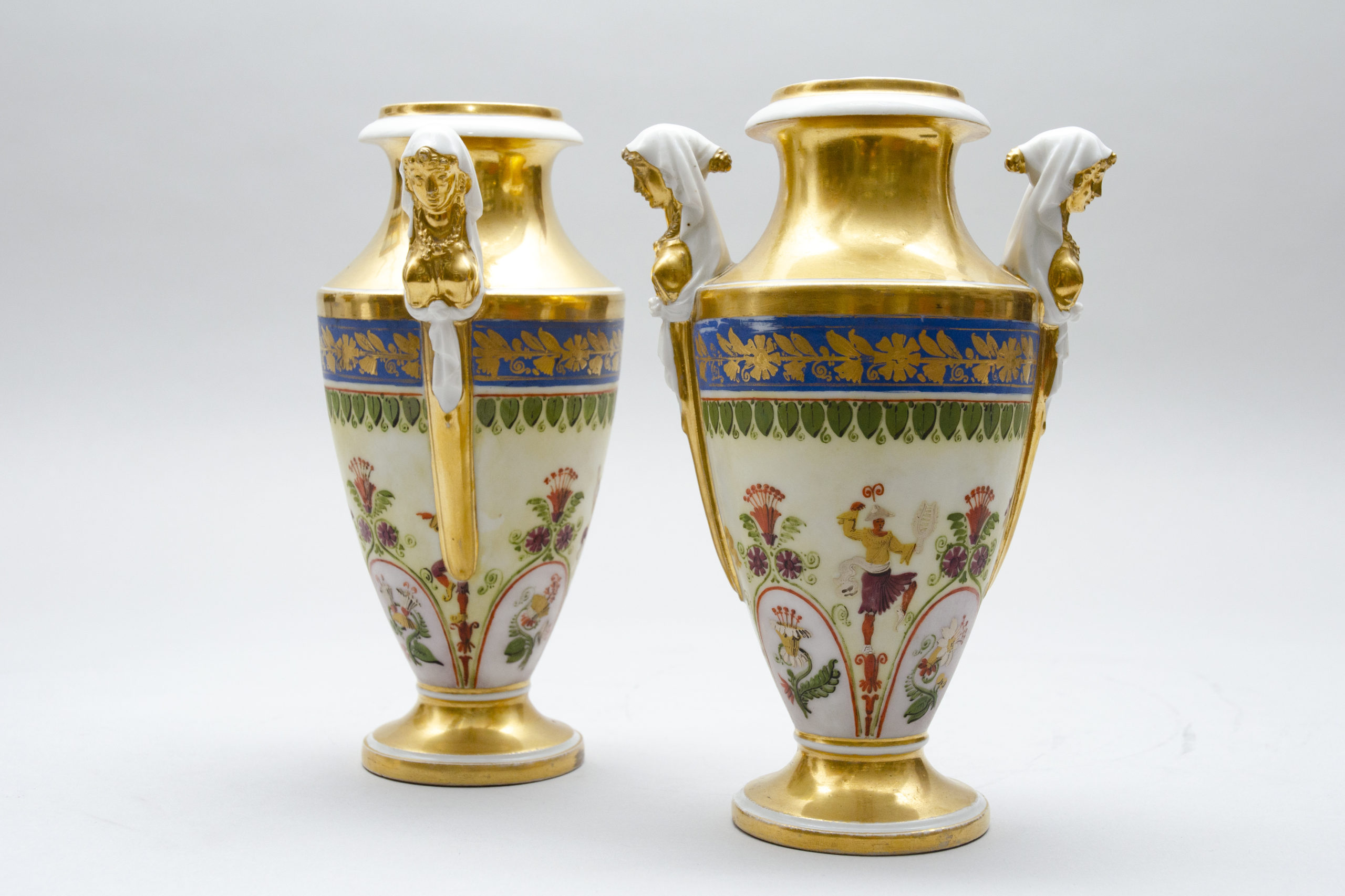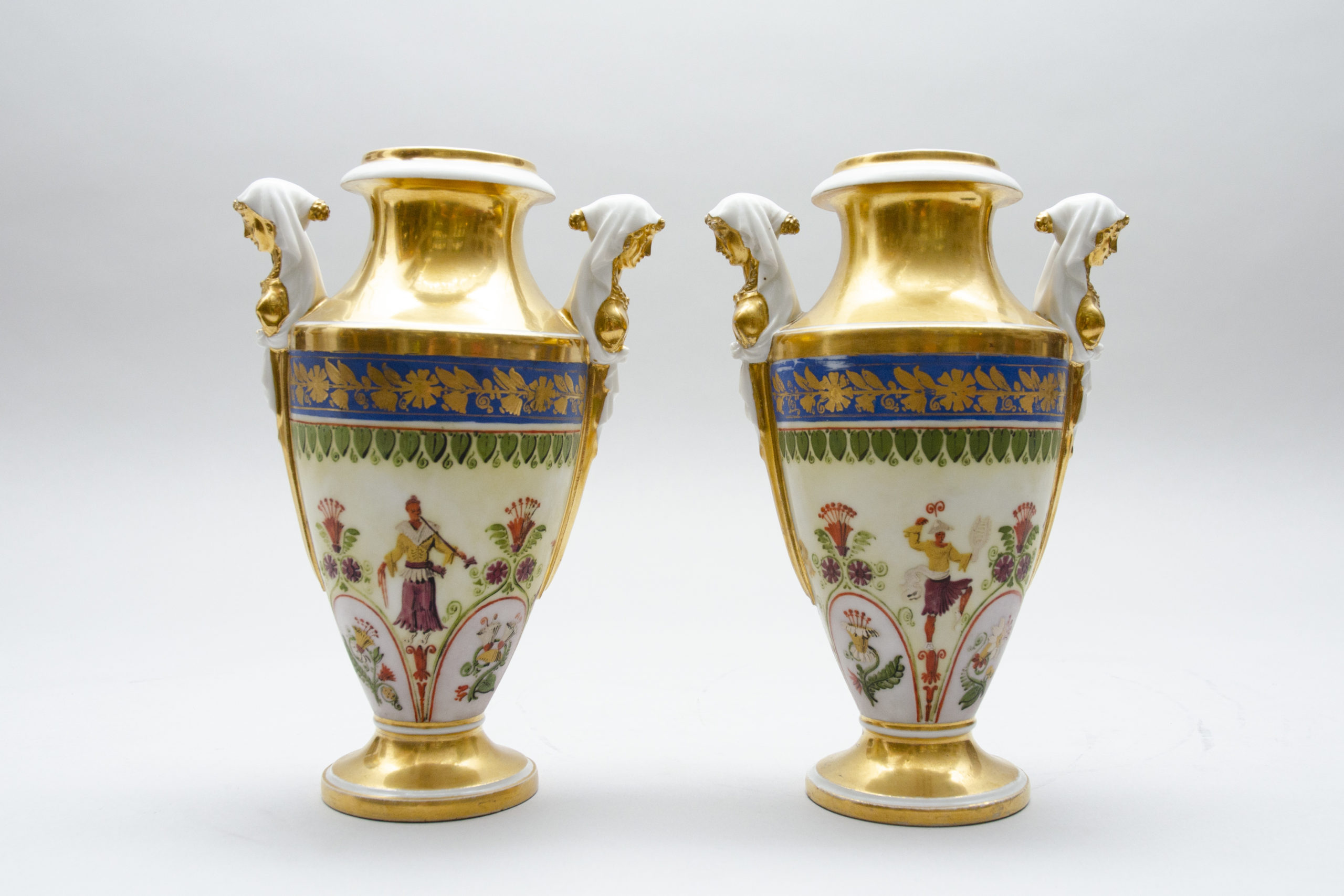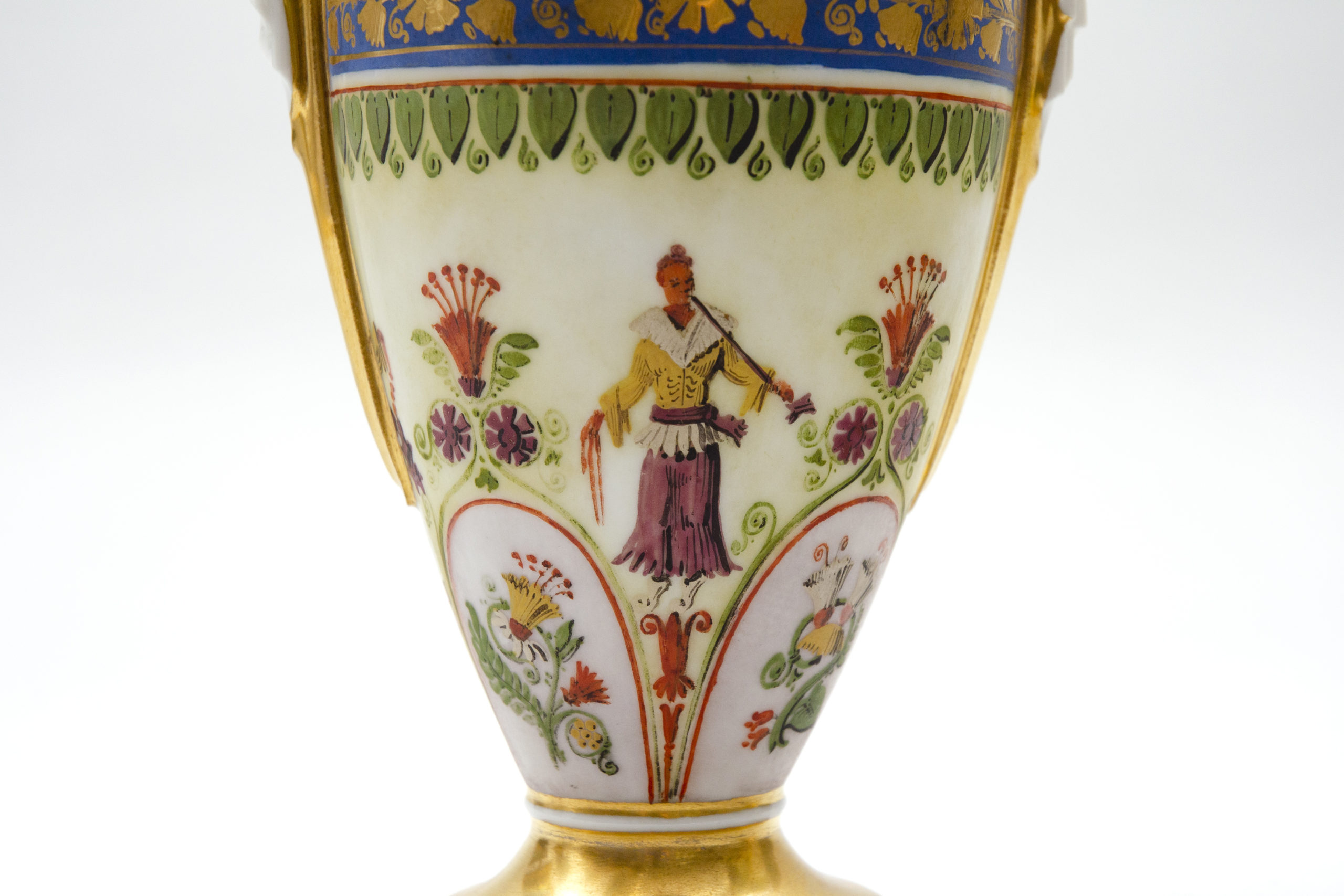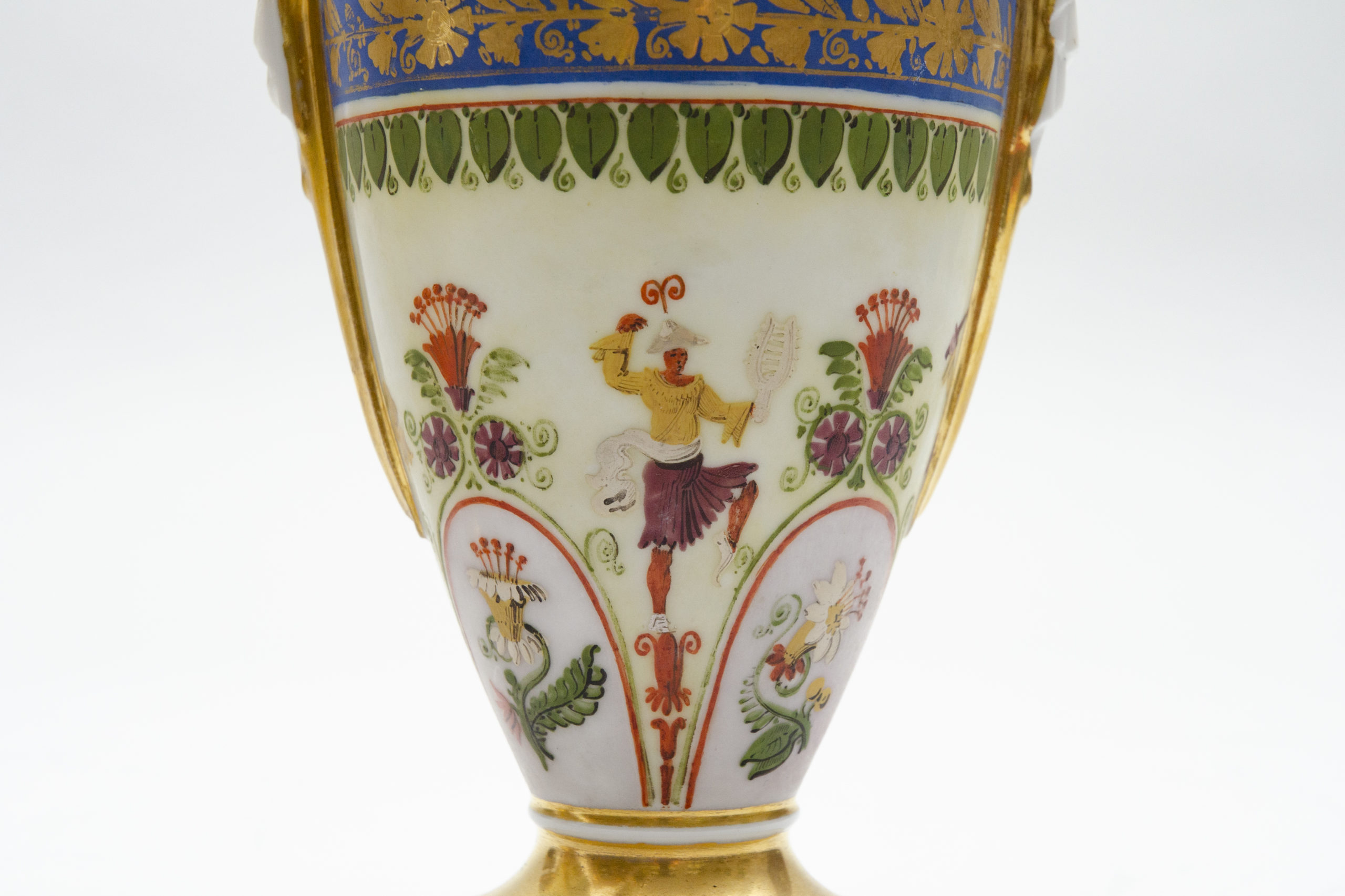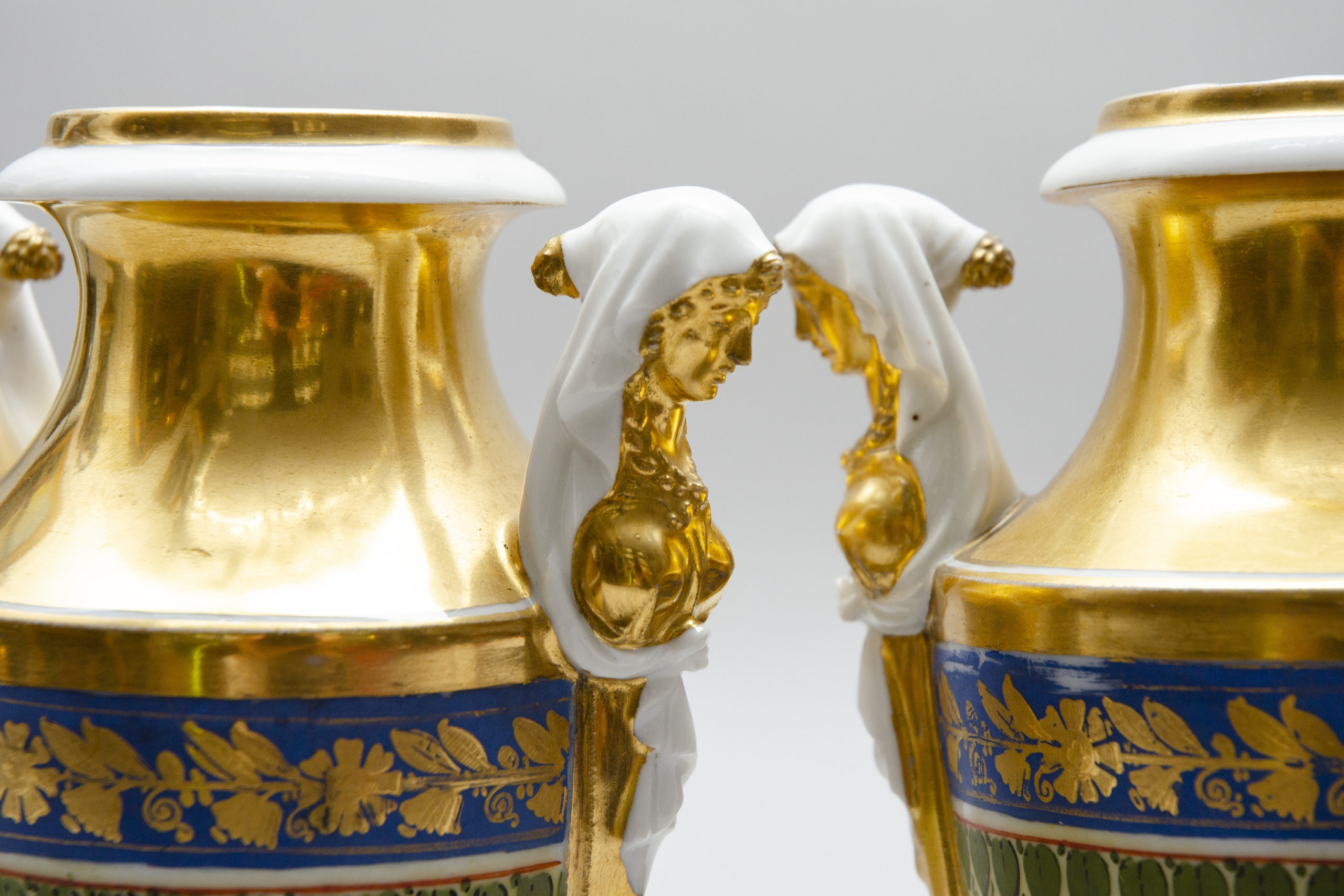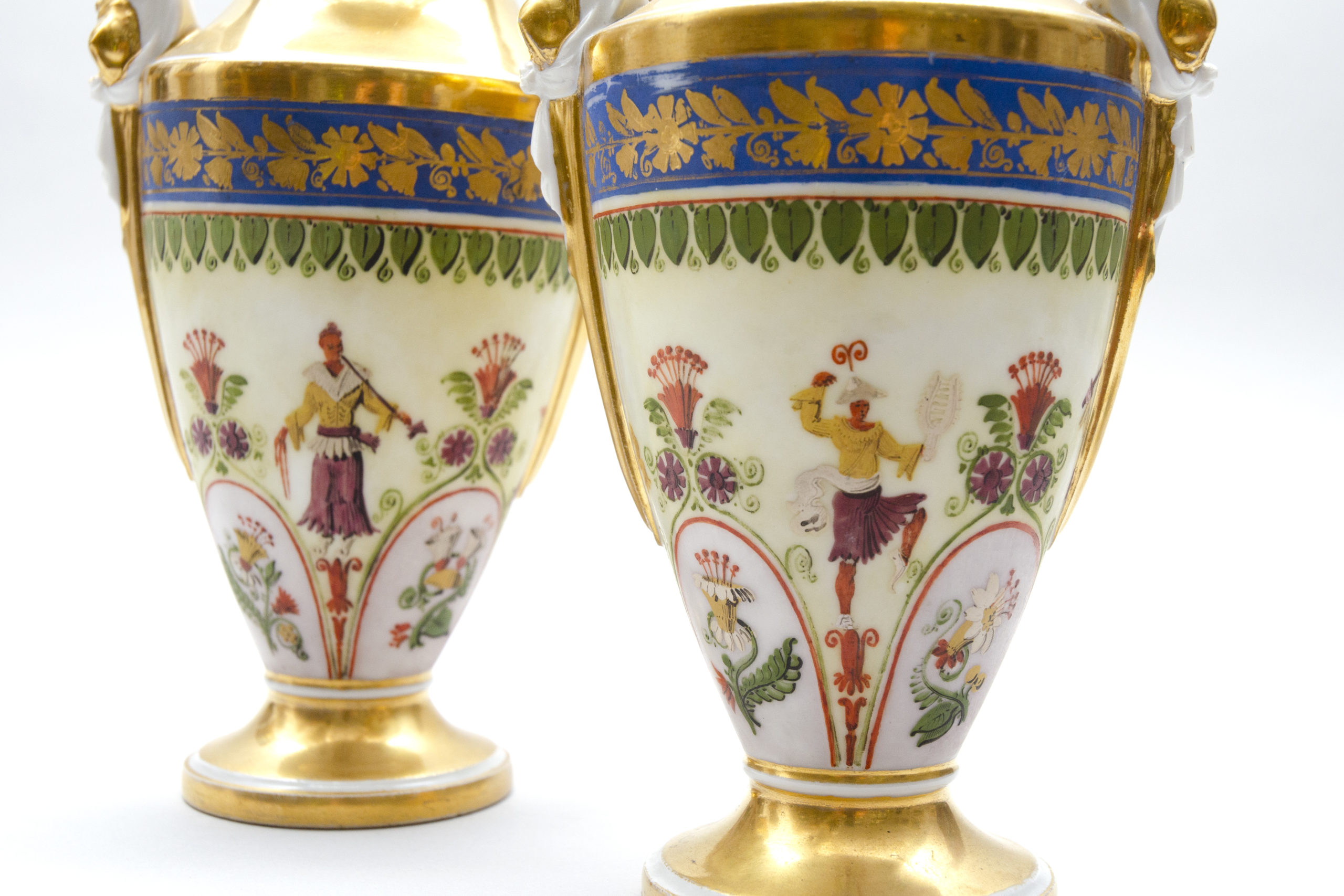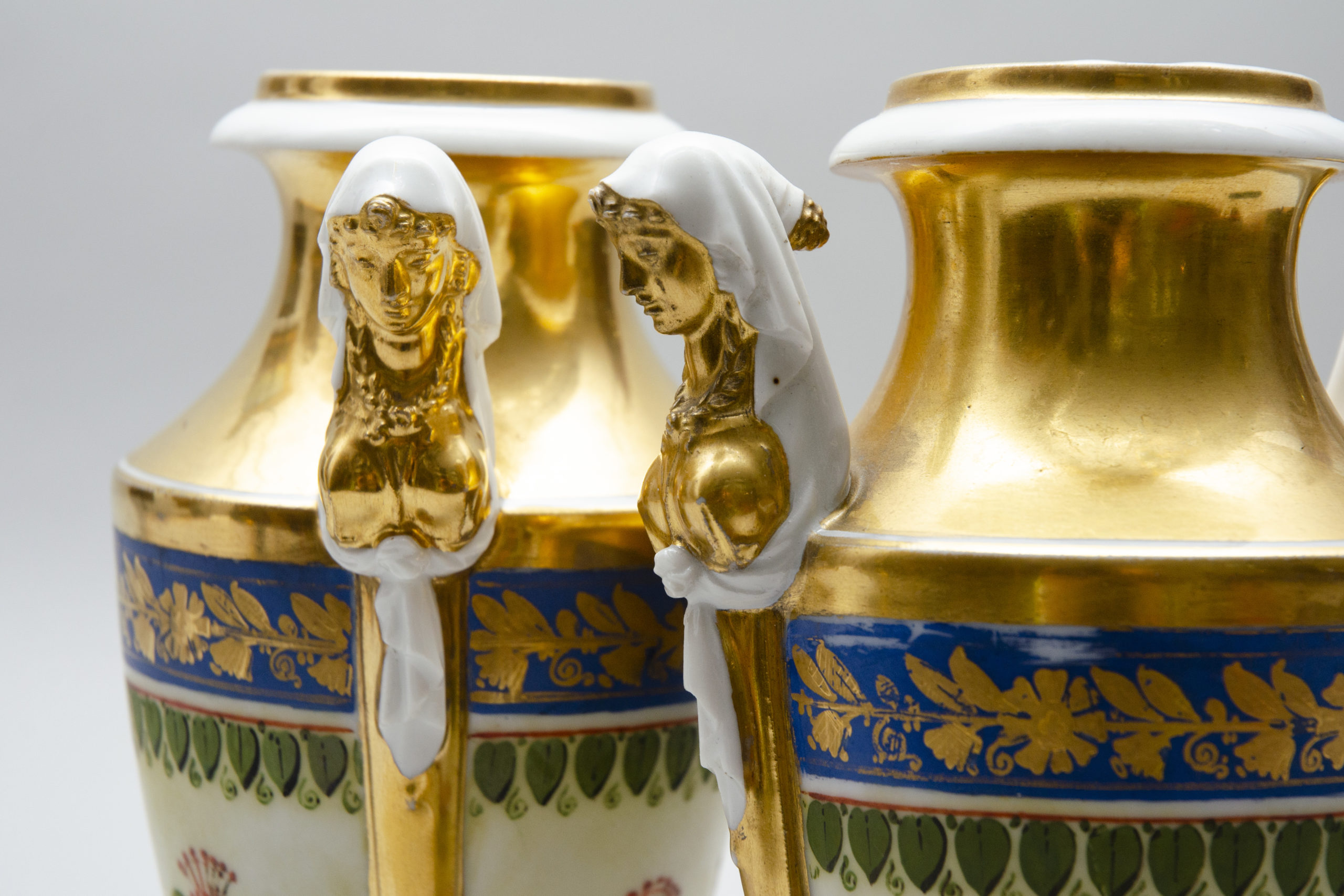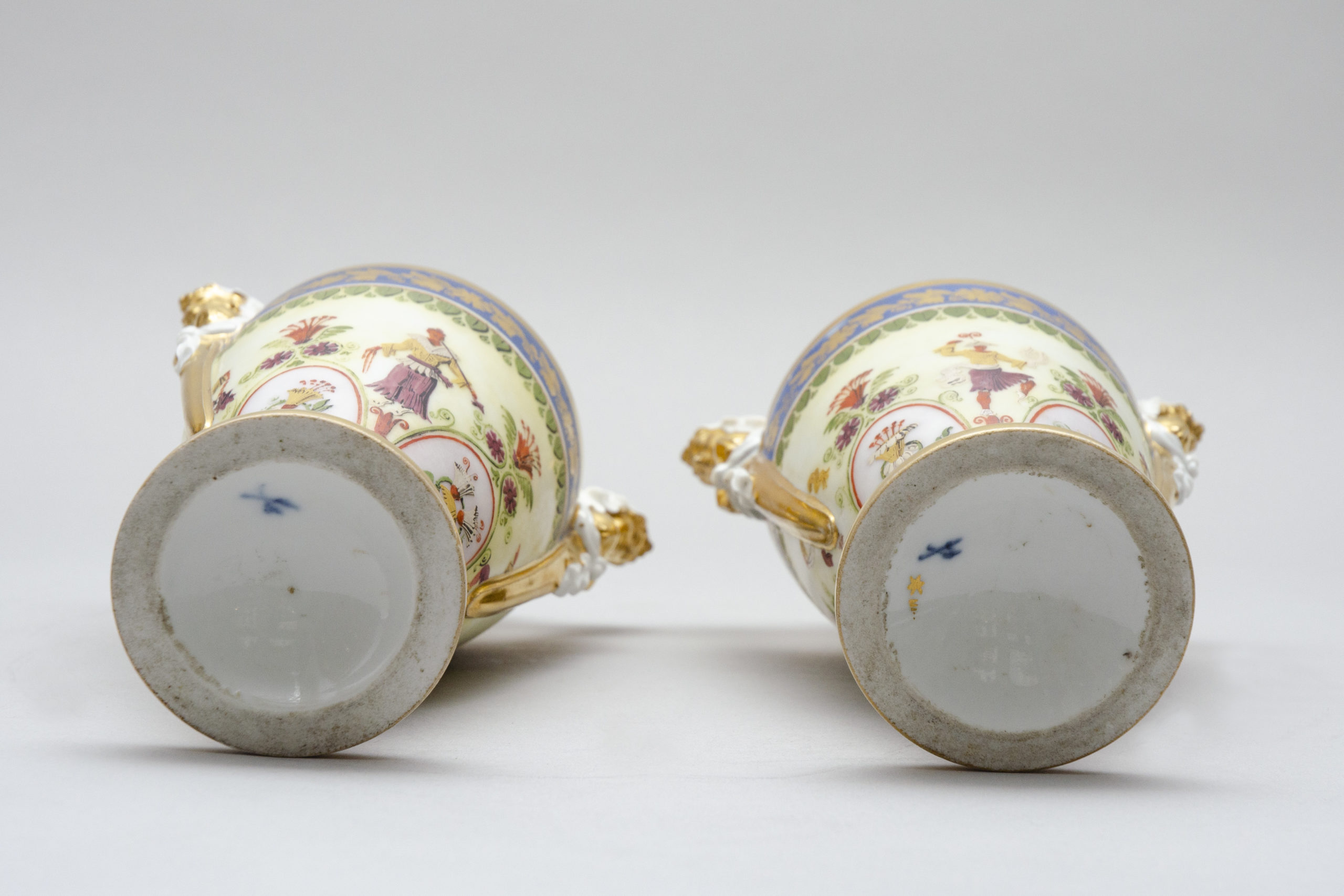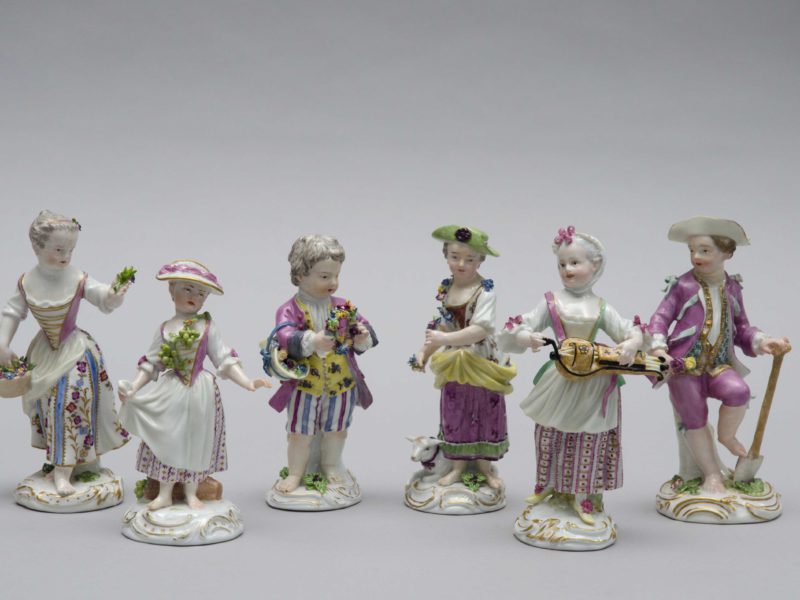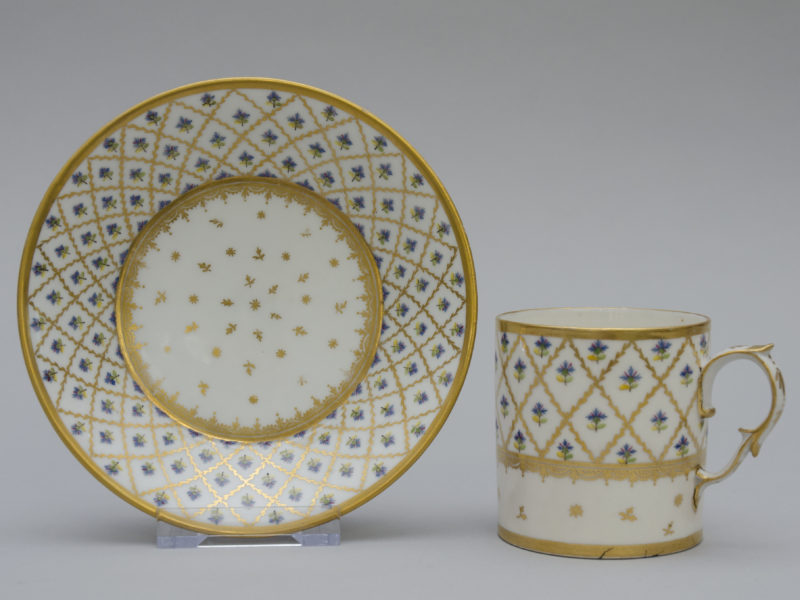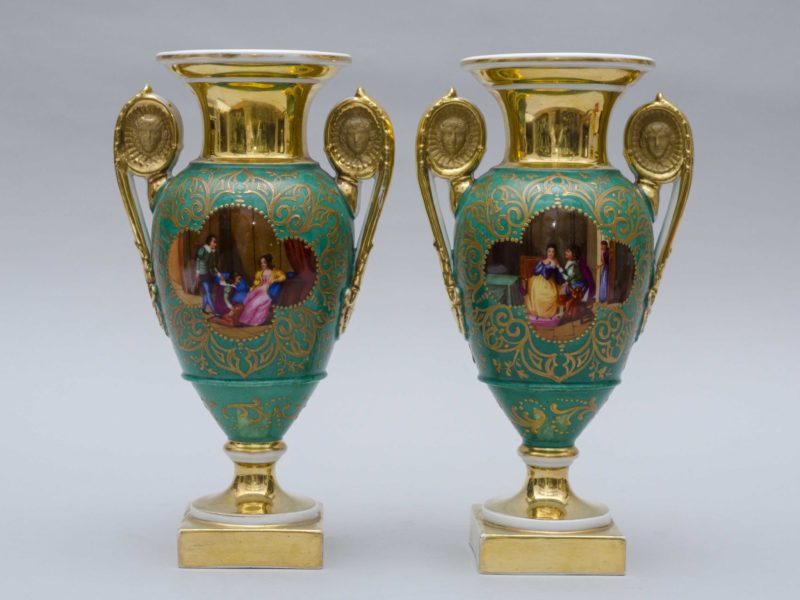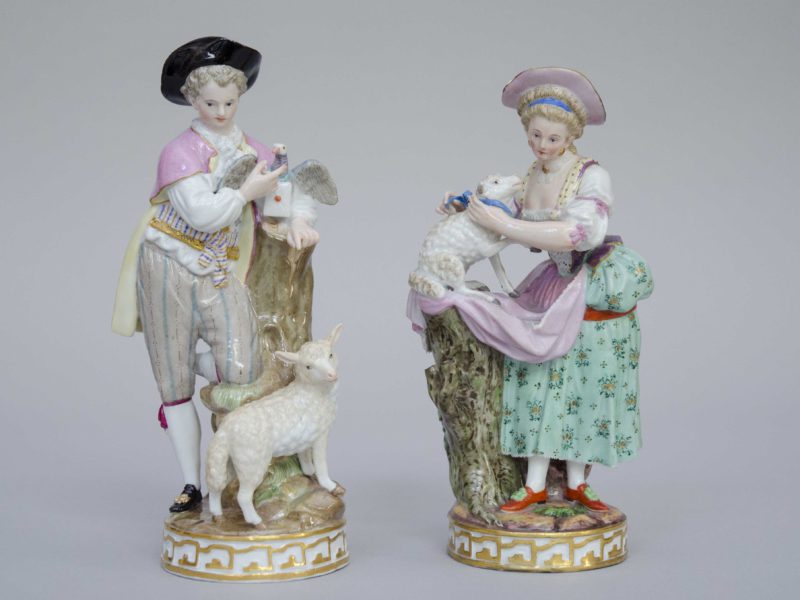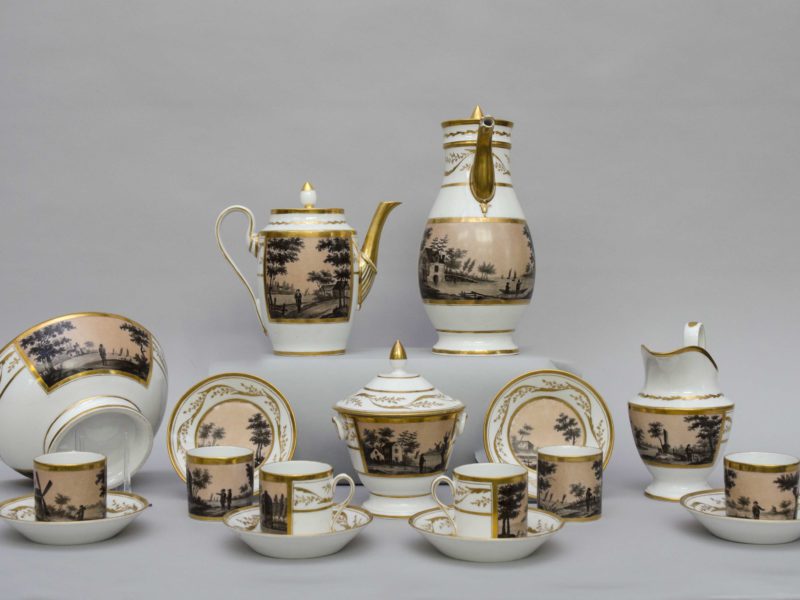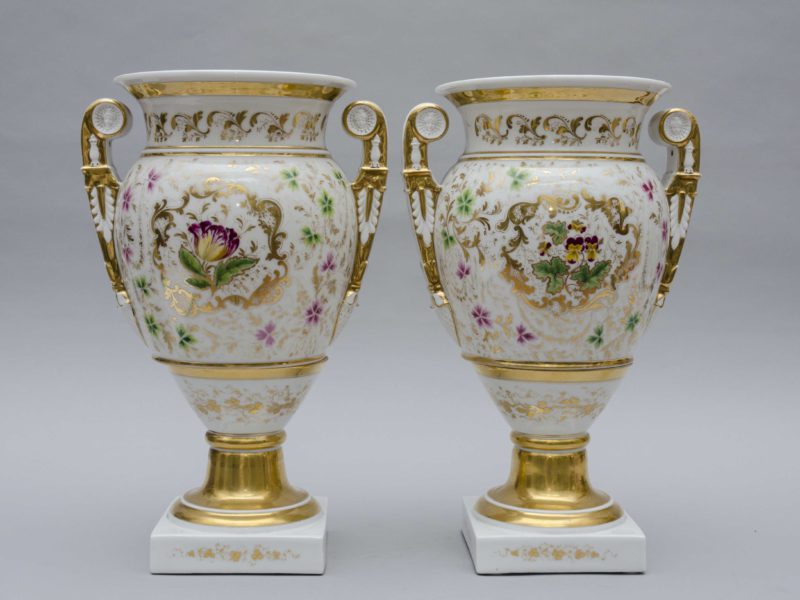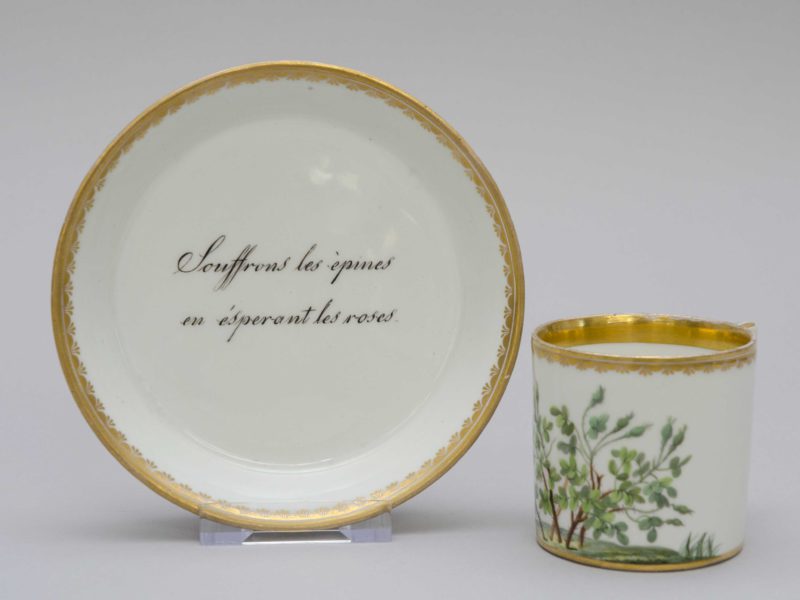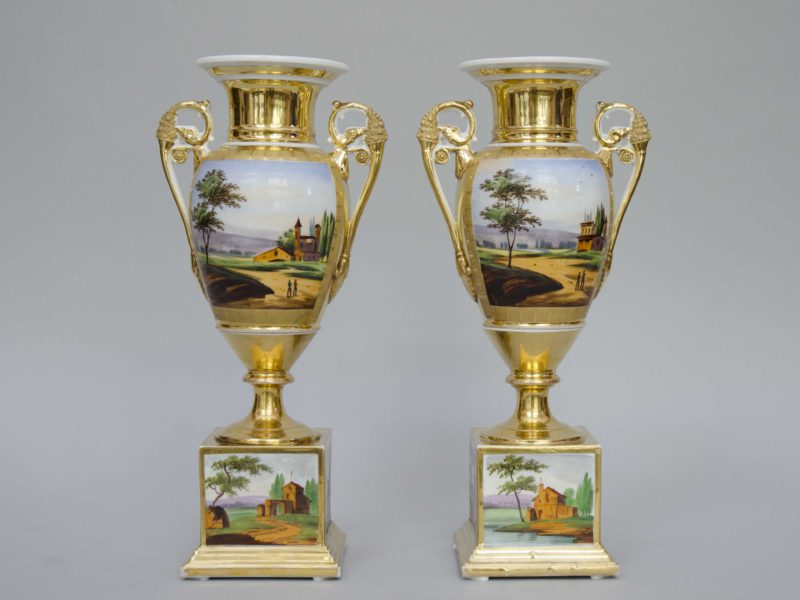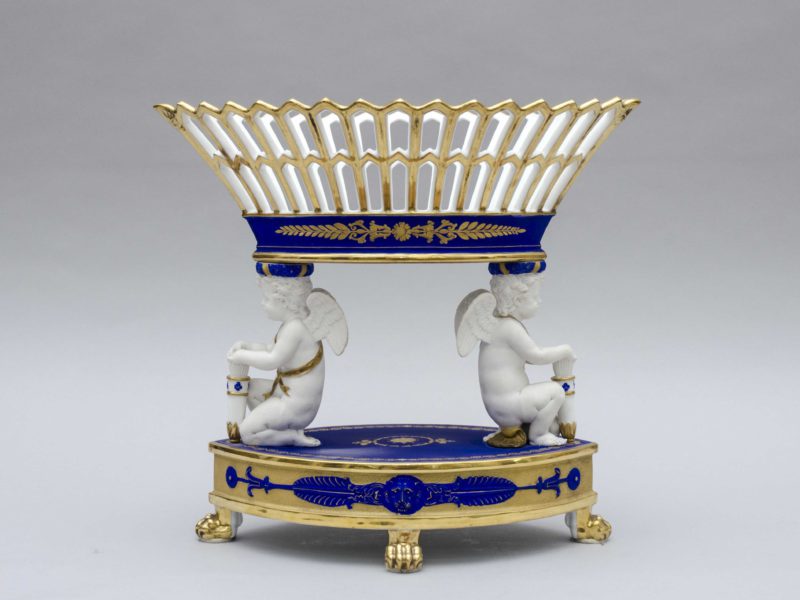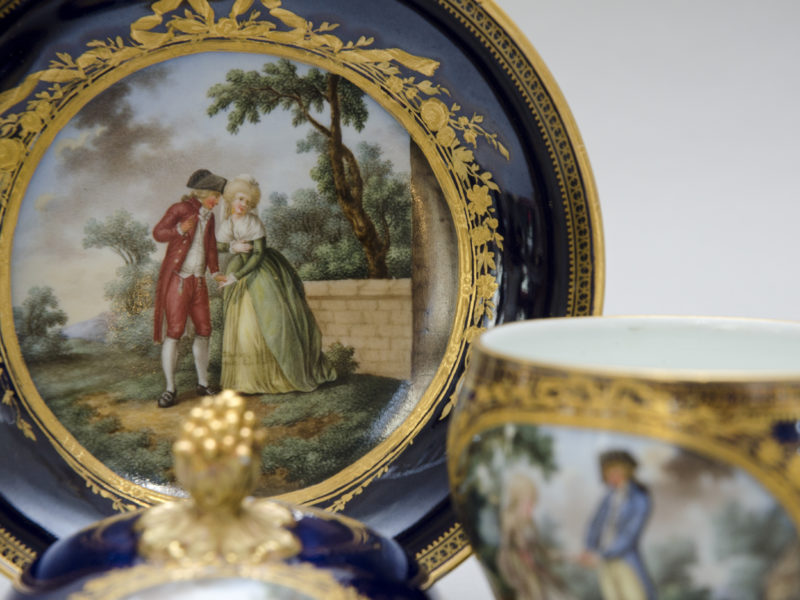
Rare pair of “Chinoiseries” vases, Locré in Paris
Out of stock
Superb pair of small vases with South-East Asian inspired figures called “Chinoiseries” on a yellow ground. Gold pedestal. The vases’ bodies are decorated with blue and green friezes enhanced with gold. Handles with busts of veiled women. Coloured set playing with shiny and matte. Very rare decoration. Great quality of the whites which are of a model listed only for Locré.
Size: H 19,5 cm
Marked for the manufacture of Locré, Paris, of the period 1795-1805.
Lit : Locré is a Parisian porcelain manufacturer whose name is one of the most (re)known, because of his abundant quality production.
Jean-Baptiste Locré de Roissy, son of a Parisian cloth merchant and fringe maker, rented a house in 1772 on rue Fontaine-au-Roi, where he set up his factory. A few months later, he hired the designer Laurent Russinger as director. Russinger had come from Höchst to the Sceaux factory in 1768, attracted by Jacques Chapelle who was unreliable. Very quickly, the production started and in 1773, Locré registered the mark of the crossed torches, which were quickly replaced by two arrows easier to trace under the pieces. The two men joined forces. Their knowledge of German enabled them to hire the best workers in the suburb, all of German origin. They opened a shop on rue Michel-Lecomte, the factory developed and became a success. There are numerous models of table and coffee services, with light and colourful decorations; a large choice of bowls for new mothers (covered broth on a tray which was the fashionable birth gift) and groups in biscuit masterpieces by Russinger. The decorations are of the latest fashion: foliage, bouquets of flowers, golden garlands, landscapes in grisaille.
In 1780, the factory was the victim of a major state seizure to enforce the privileges of the Sèvres factory. In 1787, Locré retired and sold all his shares to Russinger. Between 1792 and 1794, Russinger was building new premises and was saddled with debts at the dawn of the Terror. He was obliged to accept that Mr François Pouyat of Limoges, a kaolin merchant, should enter the capital of the factory. “Locré” then employed 70 to 80 workers. In 1800, Pouyat became the sole owner. Pouyat and Russinger continued to develop the company’s activities until the three Pouyat sons took over in 1810. In 1817, the factory obtained the patronage of the Duke of Berry. In 1820, the last furnaces in the rue Fontaine-au-Roi were shut down.
The brothers decentralized production to the provinces to have it decorated in Paris. Locré’s only son, Jean-Guillaume, a lawyer by training, had a successful career and was appointed by the First Consul Bonaparte as the first Secretary General of the Council of State and collaborated in the drafting of the Napoleonic Code, for which he was knighted in 1813 (three years after his father’s death).
Out of stock
Contact us